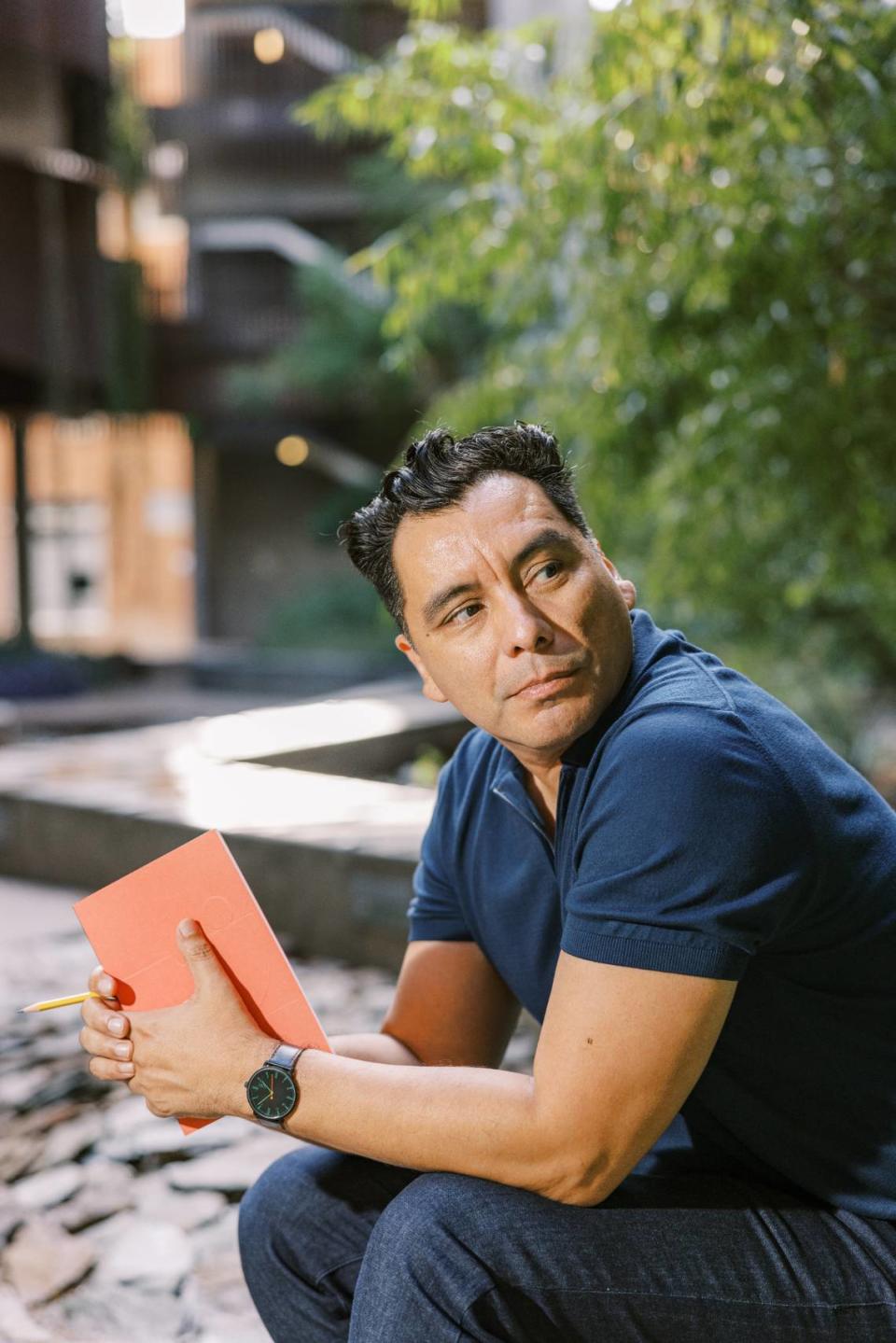Central Valley-born writer goes from agricultural fields to MacArthur ‘genius grant’ winner
Manuel Muñoz, a Central San Joaquin Valley-born Mexican American fiction writer, was awarded the prestigious MacArthur Foundation Fellowship for 2023.
Muñoz was recognized for “depicting with empathy and nuance the Mexican American communities of California’s Central Valley.” His fiction works that include short stories and a novel – draw inspiration from the Mexican and Mexican-American Central Valley agricultural towns where he grew up.
“We still think of California only as Los Angeles or only San Francisco,” he said in an award announcement. “Whereas there are huge portions of the population that never get to see themselves. So my stories I feel are a contribution to that.”
La Abeja, a newsletter written for and by California Latinos
Sign up here to receive our weekly newsletter centered around Latino issues in California.
The John D. and Catherine T. MacArthur Foundation fellowship – often referred to as the MacArthur “genius grant” – is an unrestricted $800,000 prize for “extraordinarily talented and creative individuals” to support fellows in their creative, intellectual and professional pursuits.
People have “narrow” ideas of what the Central Valley is, Munoz said in an interview with The Bee on Wednesday. They only think of poverty and hardship when they think of little Tulare County towns like Orosi and Lindsay, he said.
“But we also have hopes and dreams,” he said. “That’s what drives me, what motivates me as an artist, to try to show some of that complexity.”
Muñoz, who has won numerous awards for his writing including the 2023 Joyce Carol Oates Prize, has three collections of short stories: “Zigzagger” (2003), “The Faith Healer of Olive Avenue” (2007) and “The Consequences” (2022) that explore themes of family, race, class, gender and sexuality against the backdrop of rural, agricultural life.
His 2011 novel “What You See in the Dark,” a film noir-inspired story set in 1950s Bakersfield, tells the fictional account of the making of Alfred Hitchcock’s “Psycho” as well as the story of a young Chicana woman whose dreams of fame and fortune meet a tragic end.
More than an award for his individual successes, Muñoz said the MacArthur award is important because of what it means for the Valley’s literature and its place in the arts.
“The nation refuses to believe art is there in the Valley,” he said, “and it’s there.”
He’s not the only MacArthur fellow to hail from the Central Valley. Radio Bilingüe co-founder, Hugo Morales, also won the award in 1994.

From picking grapes to Harvard, MacArthur winner
Muñoz, 51, was born in the Tulare County city of Dinuba, about 40 minutes southeast of Fresno, where his parents – his mother originally from Texas and his father from Mexico – worked in the local agricultural fields.
“I did too,” he said, “all my siblings did.” Everyone Muñoz went to school with at Dinuba High had some experience either in the fields or sorting fruit in the local packing houses.
“Those were very common jobs for our generation,” he said.
Aside from picking grapes that were dried and sold as raisins, Muñoz said he was an avid “doodler” who scribbled little stories growing up.
He remembers inspirational Dinuba High teachers – Mrs. Dawn, an English teacher, and Mr. Robert Heilmann – for encouraging his writing and setting him on the path to college.
A first-generation college student, Muñoz graduated from Harvard University with his bachelor’s degree in English and American Literature and Language in 1994. He earned his Masters of Fine Arts in Creative Writing from Cornell University in 1998.
Today, he’s a professor in the Department of English at the University of Arizona in Tucson, but he comes back frequently to the Valley, where most of his family still resides.
“The Valley became even dearer to me once I left it,” he said.
While he’s not sure yet how he plans to use the award money, he plans to continue to write short stories. He’d also like to come back to the Valley to speak at local educational institutions such as Dinuba High school, Reedley College, Fresno State or UC Merced.
He’s also interested in starting a scholarship in his parents’ honor to continue to inspire young artists.
For young people wrestling with the decision to leave the Valley and see something different, or to stay closer to family, Muñoz said that both choices are right.
“Home always calls us back in some way,” he said, “I just don’t think you ever leave forever.”

